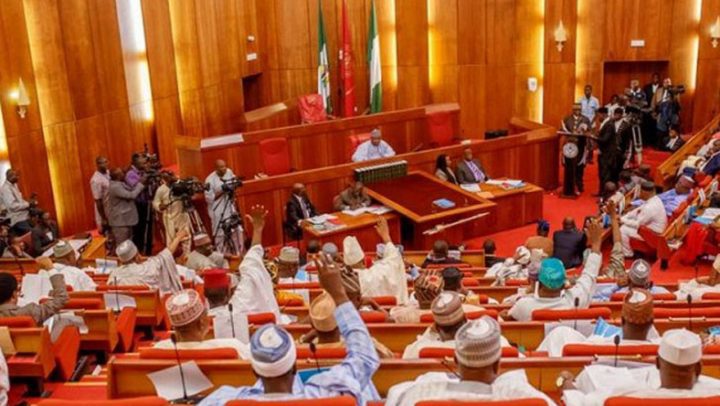The members of the two chambers of the Nigerian National Assembly on Thursday in Abuja passed the Petroleum Industry Bill (PIB) after about 13 years of legislative deliberations.
The President of the Nigerian Senate, Dr. Ahmad Lawan, said during plenary on Thursday that the demons behind the non-passage of the bill for many years had been defeated.
Lawan said that the Senate was hopeful that President Muhammadu Buhari would sign the bill as soon as it was transmitted to him.
He explained that the bill got the input of both the executive and legislative arms of government.
Local media reports on Friday said that the bill was passed after careful considerations of each of the clauses.
The reports, however, added that before passing the bill that the Senators met behind closed doors with the Minister of State for Petroleum Resources, Chief Timipre Sylva, and the Group Managing Director of the Nigerian National Petroleum Corporation (NNPC), Mallam Mele Kyari.
The passage of the bill comes exactly 13 years after it was first presented to the National Assembly in 2008.
According to the reports, President Muhammadu Buhari had on September 28, 2020, presented the PIB to the National Assembly for reconsideration.
The PIB seeks to introduce changes to the governance, administrative, regulatory, and fiscal framework of the Nigerian oil and gas industry in order to ensure transparency, strengthen the governing institutions and attract investment capital, among other objectives.
The reports disclosed that there was uproar at the Senate during plenary as the senators disagreed on the profit share percentage to be allocated to the oil producing communities (host communities) in the PIB, before finally settling for three percent.
Although the PIB has scaled through the National Assembly, the three percent profit sharing for the host community will still remain a contentious issue to be resolved.
The oil producing communities will, however, reject it as inadequate for decades of degradation of their environment due to oil exploration and exploitation in their communities.
GIK/APA


